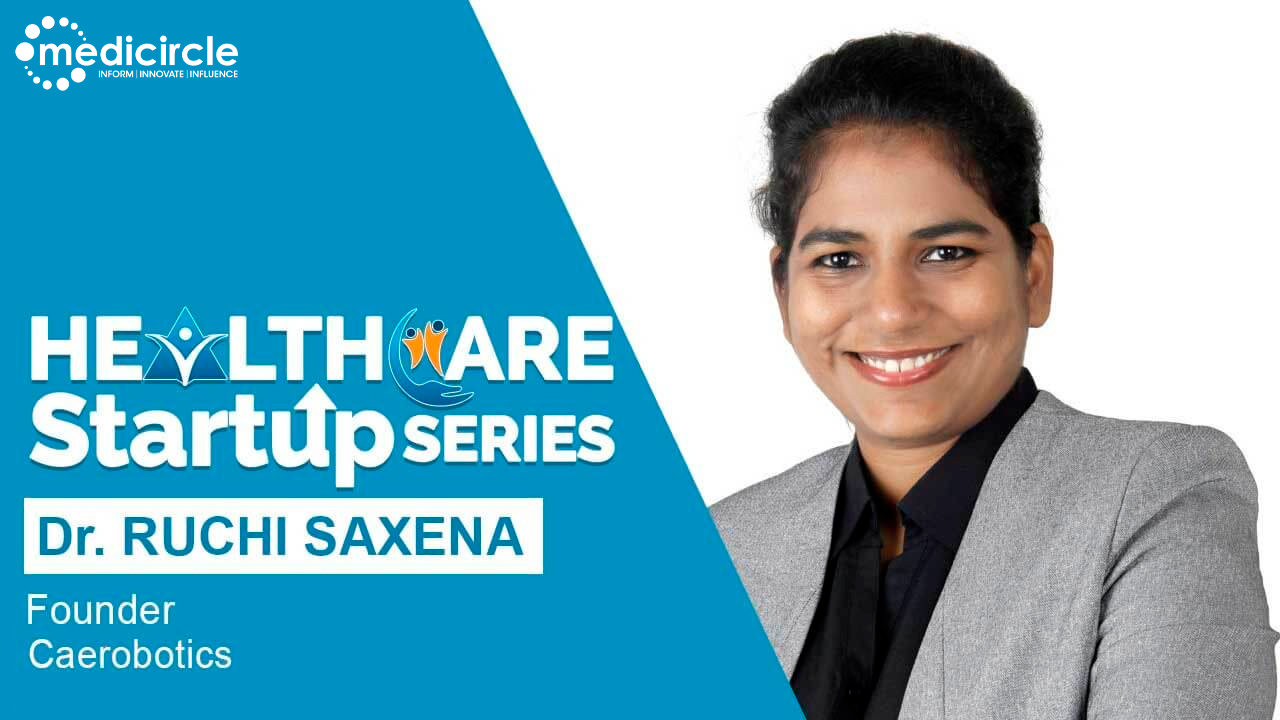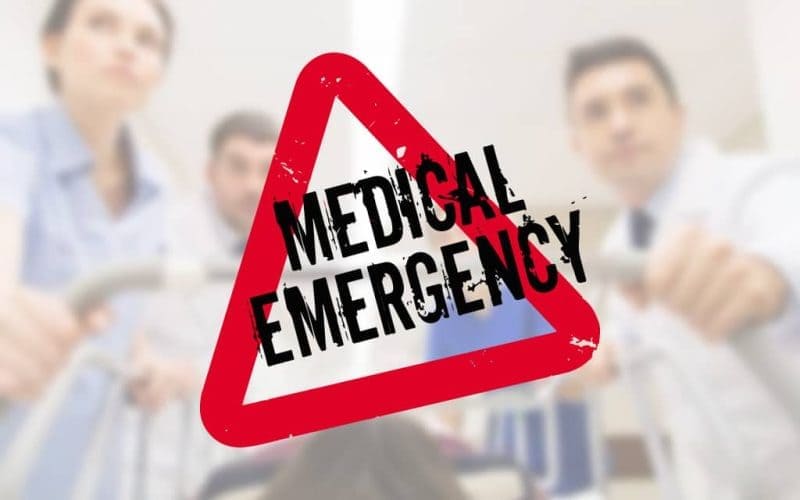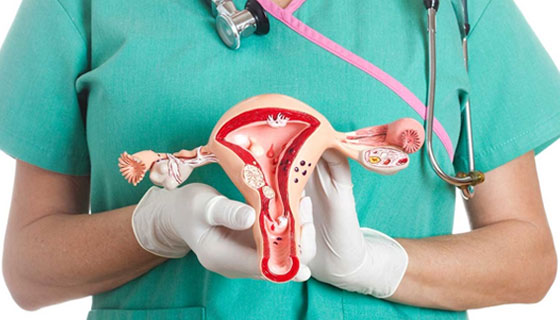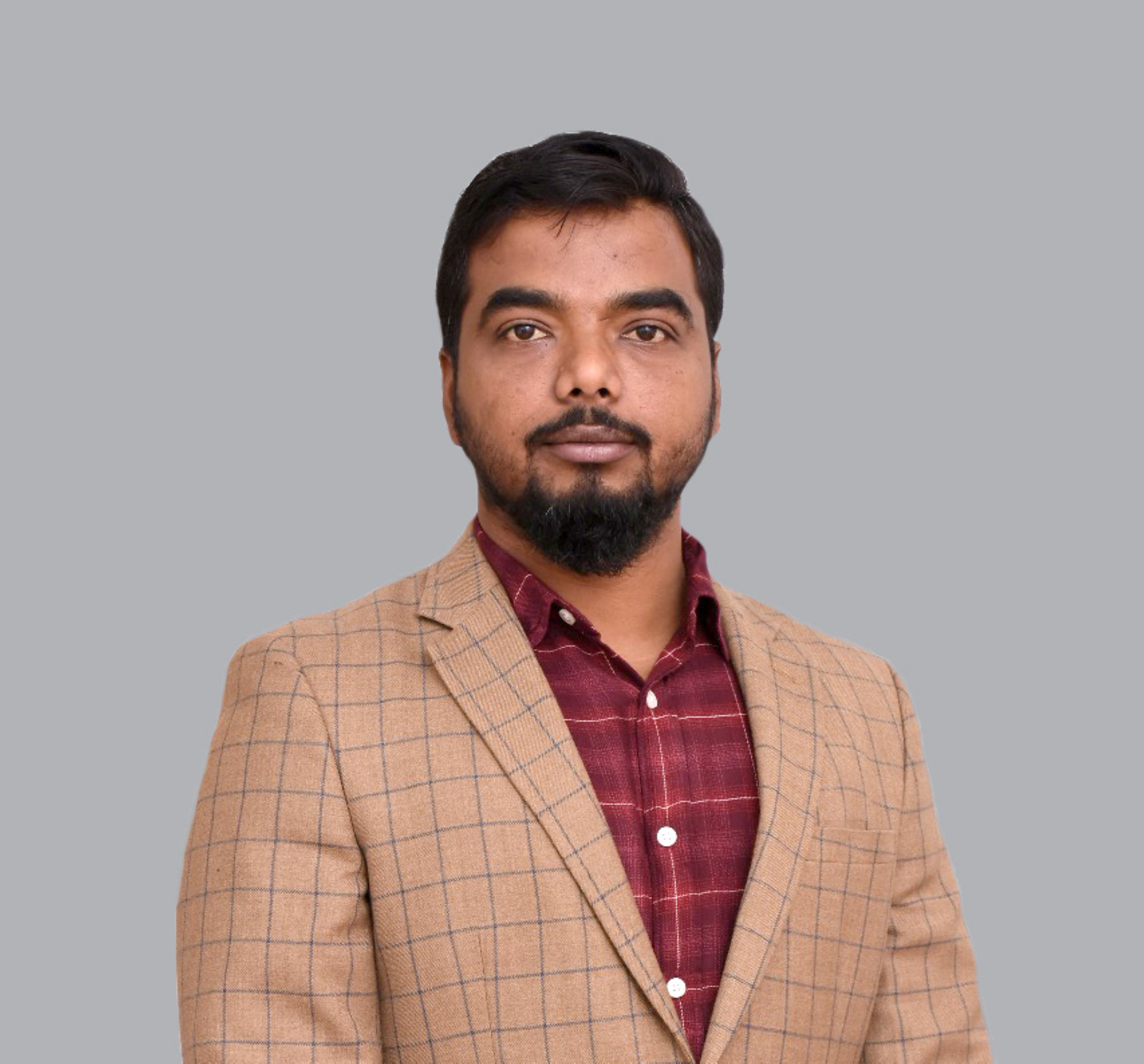In recent years healthcare has become an integral part of the business ecosystem in India. To stand apart in the race, startups today need a more customized approach and targeted promotion to have an impact on their audience. While healthcare itself is a noble profession and majorly contributes to humanity, successful healthcare Startups are making a valuable contribution to the national economies around the world, their stories as influential role models on a groundbreaking journey are inspiring many young aspirants. Leadership in the health care sector is spread across management and clinical workforces, creating peculiar challenges. We at Medicircle are conducting the Top Healthcare Startups Series to showcase the change-makers of the healthcare industry.
Dr. Ruchi Saxena is a Director of Caerobotics since 2017. She has supported 40+ local partners to enable the ecosystem for ethical and responsible use of drones for Sustainable development. She has designed and developed dronesindevelopment.com, a global crowdsourced advanced drone education platform offering Advanced Course in Drones in Development sharing knowledge in 40+ knowledge areas.
Caerobotics – How it started?
Talking about the journey, Dr. Ruchi says, “I come from Mumbai. And I have only seen the bright and chirpy Mumbai that we know about throughout my childhood and my growing up here. It was so easy for us to find doctors within a km periphery and at least 3 - 4 hospitals in a 5 km periphery. We never felt the pinch that is a reality for almost 80% of the world. It became evident to me, the entire gap of inaccessibility when I was traveling in Nepal. There people were carrying patients on their backs and heading down the mountains. And this was very common. Also, I was on a certain project where I come across a lot of cases where a new mother and a new child just lose an opportunity to live because they're very far away from the hospital or the medical care. That was an eye-opener for me and I started my search because the answer somewhere lies in aerial delivery of medicines to the doorstep of people.”
Dr. Ruchi adds, “Along the journey, I realized that it's not just going to be about drones. It was the ecosystem problem because, on one hand, you need knowledgeable and equipped trained people who would manage it. On the other hand, it would be the authorization, compliance with the government rules that would need approval. The second aspect was about technology because the user experience has to be brought into the picture right at the design level as they are the ones who would be using the technology at ground level. That's when I realized that I need to probably start as a whole business, not just observing and doing something about it, but giving it full time because it would need that kind of time, energy, and dedication from my side to even make it happen. With this vision, I founded Caerobotics which comprises care, aerial, and robotics. It means the care that has to be delivered through aerial robotics.”
India Flying Labs and Drones in development
Dr. Ruchi reveals, “Drones are helpful in disaster management, large scale mapping, medical deliveries, agriculture and so many. This triggered other options like India flying labs and Dronesindevelopment.com. India Flying Labs are the global network of an organization that uses technology for social good applications. Dronesindevelopment.com is an education platform for advanced courses in drones in development. This includes two rounds of course that run for 30 days with 30 different speakers, 30 assignments on 30 different topics. We want to encourage more and more mentors to come on board and start teaching. This will engage futuristic leadership with high social impact. We started on December 1st week and getting very good responses. Drone trials are happening for medical deliveries in Telangana right now, other states are lined up. We are trying to bring in the aspect of quality, safety, and excellence.”
Biggest challenge
Dr. Ruchi expresses, “Biggest challenge within this industry is that it is a very narrow industry and we don't have much data to prove ourselves like what exactly we are doing and what we are up to. So, investment is like a big block for us because investors are still a kind of hesitant. It requires a lot of struggle. There is no direct funding from the government or philanthropists. Government is ready to give permit or paperwork but no funding.”
Myths about drones
Bursting some myths about drones, Dr. Ruchi voices, “I think there is a lot of myths around drones as well. For example, drones are a threat to wildlife. But in reality, drones have been helping wildlife a lot. They've been helping the conservation efforts in so in many cases, not just for monitoring the forest but also helps in monitoring the habitat. We haven’t come across any report that states that drones have been harming the birds. Rather, we need to protect our drones from eagles because eagles don't like drones and they destroy them.”
Drawbacks
Dr. Ruchi speaks, “There's a lack of awareness in the general public about what drones are. But the main problem is of negative elements who might misuse the drones. And that's the reason we need professionalism even in the drone industry because the standard that we maintain for aviation has to be transferred back to unmanned aviation as well. If we bring in a professional grade of knowledge and training and some basic methodologies of how to use, then the threats go down drastically.”
Dr. Ruchi mentions, “So we as an industry have to come together to build this awareness and sensitivity amongst the general public so that the acceptance of the drones itself goes up. A lot of government projects use drones at a certain scale. That's the reason, a lot of companies have scaled up very well in the last couple of years. All we need is encouragement in form of project opportunities and funding. I think our youngsters are too good at work.”
(Edited by Renu Gupta)

 Dr. Ruchi Saxena, Director of Caerobotics describes the need, challenges, and drawbacks of the unmanned aviation (drone) industry. Drones are Unmanned Air vehicles (UAV) without any human pilot, crew, or passengers. It has several uses. Dr. Ruchi also talks about Drones in development, an education program for advanced courses in drones
Dr. Ruchi Saxena, Director of Caerobotics describes the need, challenges, and drawbacks of the unmanned aviation (drone) industry. Drones are Unmanned Air vehicles (UAV) without any human pilot, crew, or passengers. It has several uses. Dr. Ruchi also talks about Drones in development, an education program for advanced courses in drones









.jpeg)













.jpeg)

.jpg)




